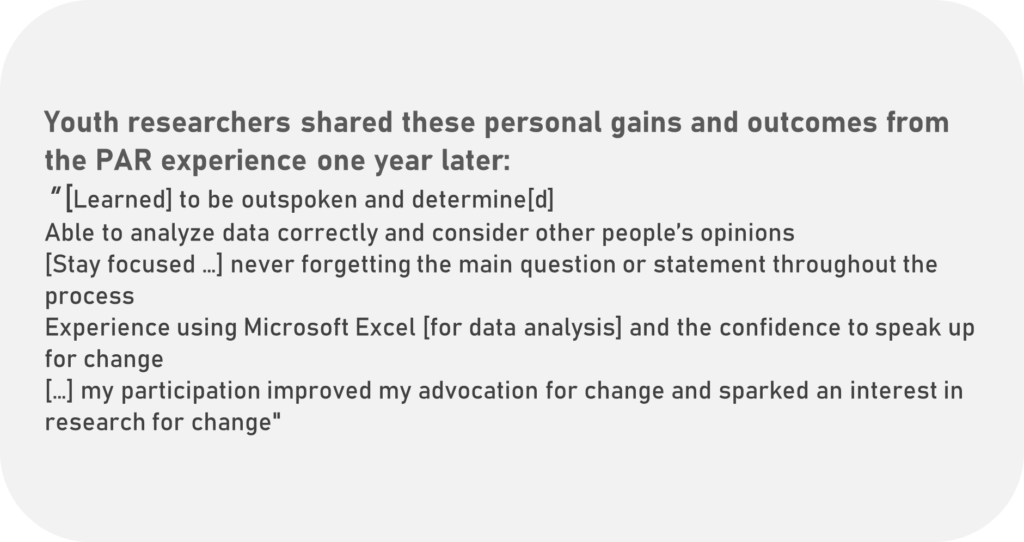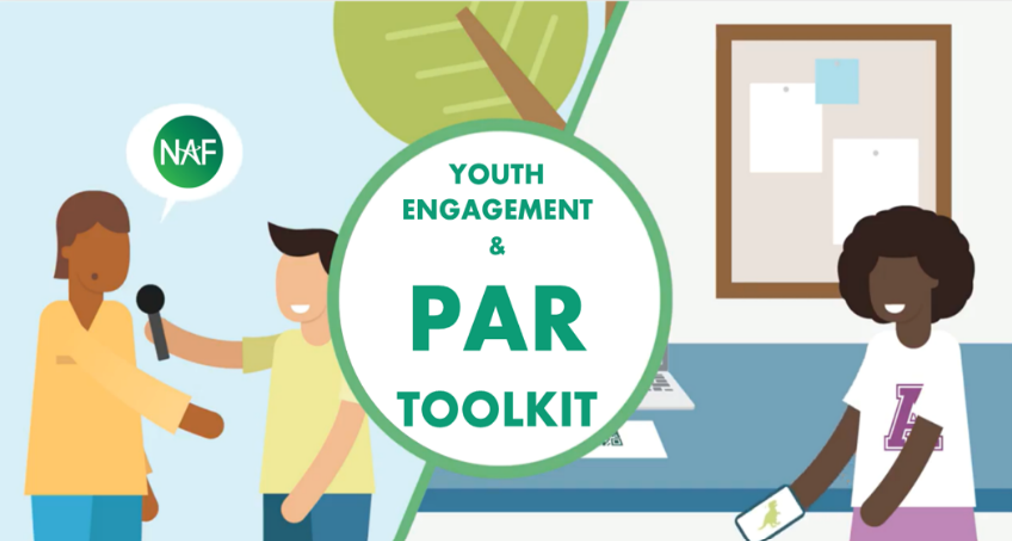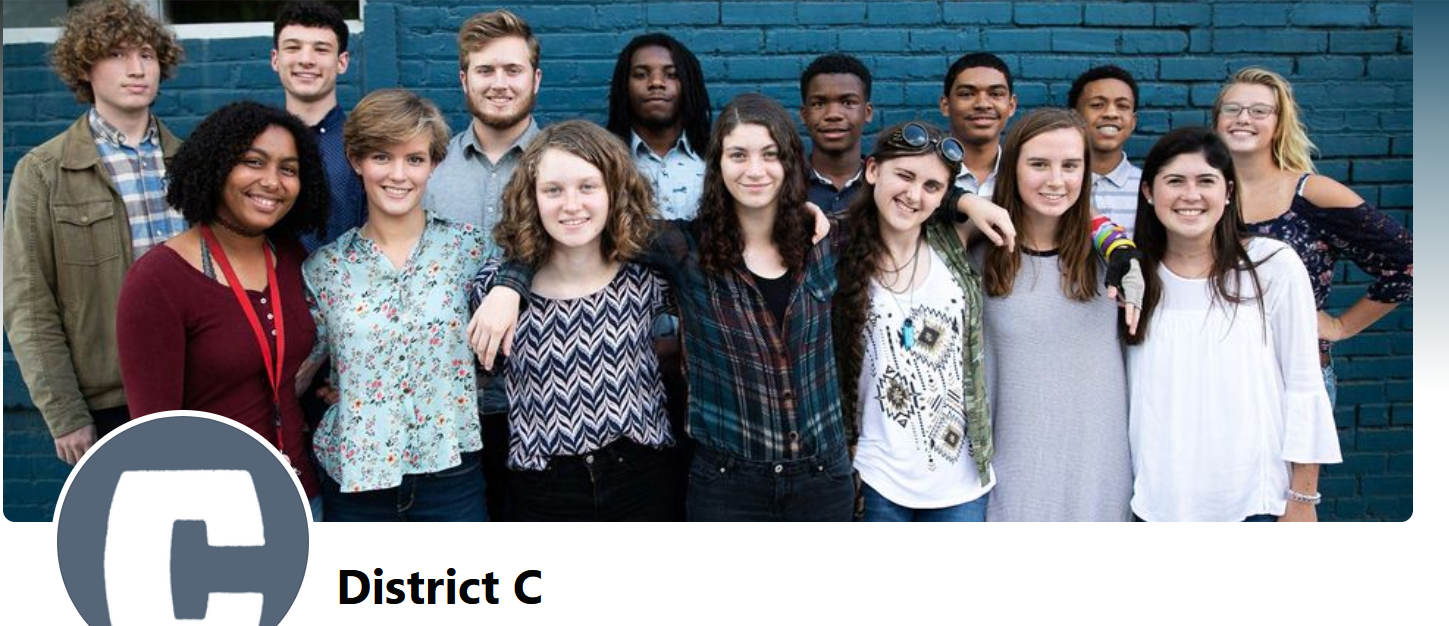Three Conditions that Create Responsibility & Ownership in Your Graduates
Youth acquire a deep sense of responsibility and ownership when they participate in issues of importance to them, including matters of community development and/or placemaking. NAF is committed to helping academies provide these kinds of opportunities for academy students – having them be part of the decision-making process, on issues that affect them the most. Youth-Participatory Action Research presents educators and students with a framework around which they can build and apply critical skills, while acknowledging their agency and effecting meaningful change in the institutions intended to support them [YPAR Hub, http://yparhub.berkeley.edu].
Y-PAR is More Than a Project
NAF academy students in Birmingham, AL, participated in a six-month youth participatory action research (YPAR) experience, driven by their desire to identify and mitigate issues negatively impacting students’ sense of preparedness for college and career. The Wenonah High School YPAR project resulted in the documentation of students’ needs, recommended actions for school allies and leaders, and collaborative planning and discussion events. They sought and witnessed change that resulted from their own actions. Powerful, indeed!
The post-Y-PAR debrief revealed equally powerful and lasting outcomes of this PAR experience on the individual youth researchers (participants).

In their own words, these youth researchers described the growth and skills development we want for youth of all backgrounds and capabilities.
Consider how the Wenonah Youth Researchers’ outcomes align with this and the YPAR benefits according to the Y-PAR Hub at Berkeley below:
Y-PAR improve young people and their institutions:
- Redefine who has the expertise to produce and share knowledge to make our world a better place — not just professional adult researchers, but young people who are living the issues they are studying.
- Evaluate programs, policies, and practices that affect young people.
- Provide opportunities for skill building, in inquiry, evidence, and presentation, that are important to young people’s development – as students and agents of positive change in schools and communities.
- Promote young people’s sociopolitical development and positive psychological capacities, to ensure that they understand the roots of problems facing their communities and possess the tools and motivation to act.
At a time when the world around our youth has an even greater appetite than ever before for the kind of disposition that will help them solve challenges for communities, locally and globally, what are the stakes of building responsibility and ownership into our academy experiences?
The know-how and the confidence to participate and take action to improve one’s own conditions must be learned and experienced. Recent data suggests that most NAF graduates enrolling in college after high school remain in their home states (attending in-state colleges). What a difference they can make in their communities, colleges, and states if they are equipped with the skills to engage, participate, and advocate for change, improvement, and “better” futures. What are the elements of preparedness are your graduates taking with them to Miami Dade College, FIU, Cal State Fresno, Porterville College, or the University of Texas?
The Wenonah YPAR learnings and youth reflections of positive experience, personal growth, and self-advocacy should inspire each of us to do more to ENSURE that similar outcomes become standard for each graduate’s academy experience.
Reflect on your practice using the prompts below:
For which of the Youth Voice conditions below can YOU check “YES?”
I KNOW that I KNOW that I KNOW …
- Students progressing from my care/class/academy/school feel that their individual and collective perspectives, ideas, and experiences are VALUED by those of us in authority.
- Adults in my academy/community are prepared, willing, and/or actively supporting young people in their pursuits to improve situations and conditions that impact them most.
- There are established programs, activities, and protocols in my academy/school/community for young people to share their voices and PRACTICE skills of active and meaningful engagement for change/improvements.
How can NAF help you do more to activate students’ interests and prepare experiences that allow them to build future ready skills, as they improve their own environments?
Check out the PAR Tools and resources now available in ASH: PAR Toolkit – including Participatory Activities for exploring data and issues from the NAF Student Survey with students. See Resources under the Student Guide 2022 in ASH.
Feel free to reach out to Dee Chambliss (dchambliss@naf.org) for more information about NAF’s Youth Voice and Engagement research, resources, training, and upcoming pilot opportunities.






